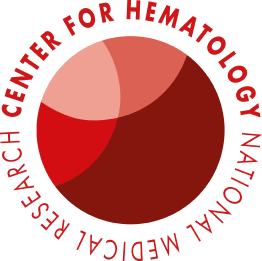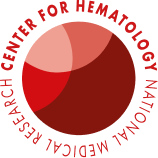
Head of the laboratory - hematologist Irina V. Galtseva, Candidate of Medical Sciences.
The laboratory was organized on March 1, 2013
Immunophenotyping of cells, carried out using flow cytometry, is widely used in clinical diagnostic and scientific research. A distinctive feature of this analysis is the ability to determine the phenotype of single cells. The method is based on the use of monoclonal antibodies to differentiation antigens, the combination of which makes it possible to detect various cell populations. The collection of antigens on the cell surface is called an immunophenotype. Over the past 20 years, flow cytometry has become an integral tool in the diagnosis of various hematological diseases, in particular lymphomas, leukemias, plasma cell neoplastic diseases, paroxysmal nocturnal hemoglobinuria (APG), etc. Based on the data on the immunophenotype and the analysis of a large number of cells, flow cytometry makes it possible to find extremely rare cell subpopulations.
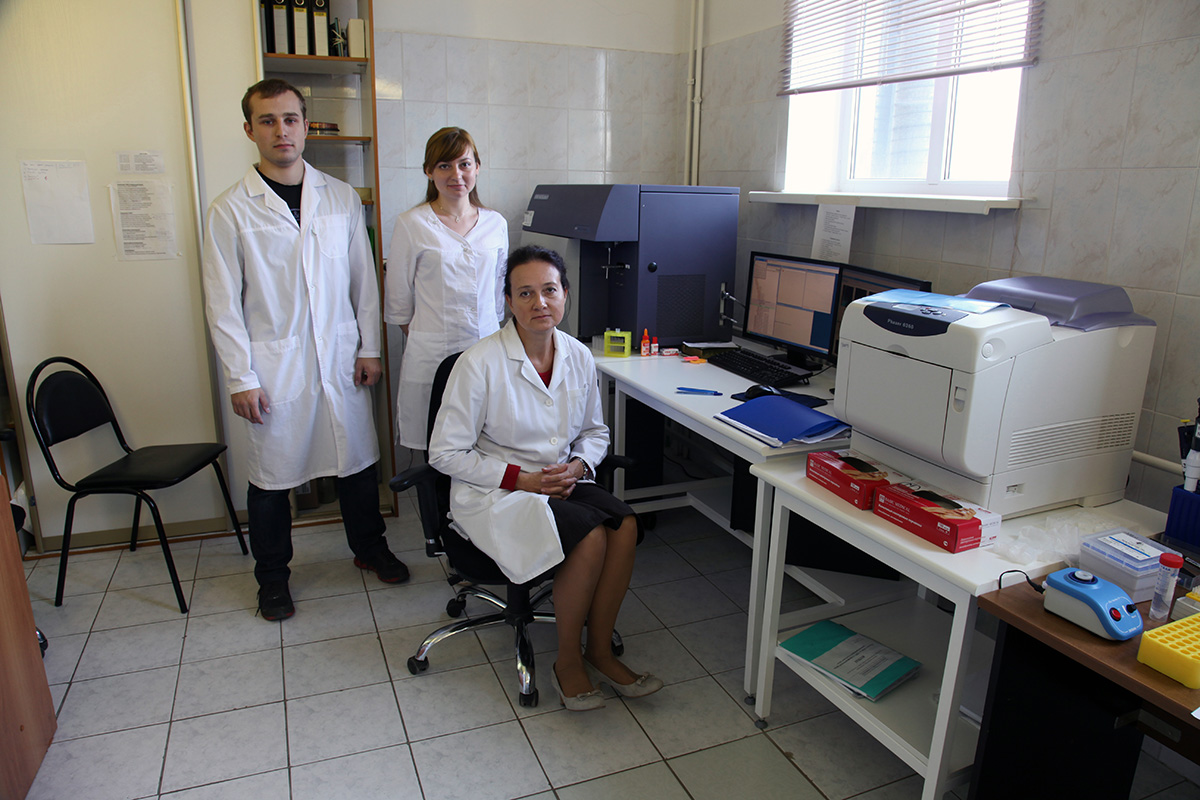
Laboratory team. Irina V. Galtseva(sitting) — head of the laboratory. Standing: N.M. Kapranov, U. J.O. Davydova.
Laboratory staff are highly qualified specialists in the field of flow cytometry. They have been trained not only in clinical centers in Russia, but also in foreign universities and have certificates in the basics of flow cytometry. They have passed training at the International School of Cytometry in Geneva (Switzerland) and received a certificate confirming the adequacy of their analysis, allowing them to study the PNH clone (Russia, America). They have also gained practical experience in the diagnosis and analysis of acute leukemia and lymphomas at the University of Ghent in Belgium. Laboratory staff regularly attend international conferences and exchange knowledge with foreign and Russian colleagues.
The laboratory closely cooperates with the scientific and clinical divisions of the NMRC for Hematology. The main focus of the laboratory is the standardization and application of flow cytometry for the diagnosis of minimal residual disease (MRD) in diseases such as multiple myeloma, acute lymphoblastic and myeloid leukemias.
In the laboratory, hematopoietic CD34-positive stem cells are routinely counted in peripheral blood samples, bone marrow, and leukocytapheresis products according to the international protocol ISHAGE (International Society of Hematotherapy and Graft Engineering).
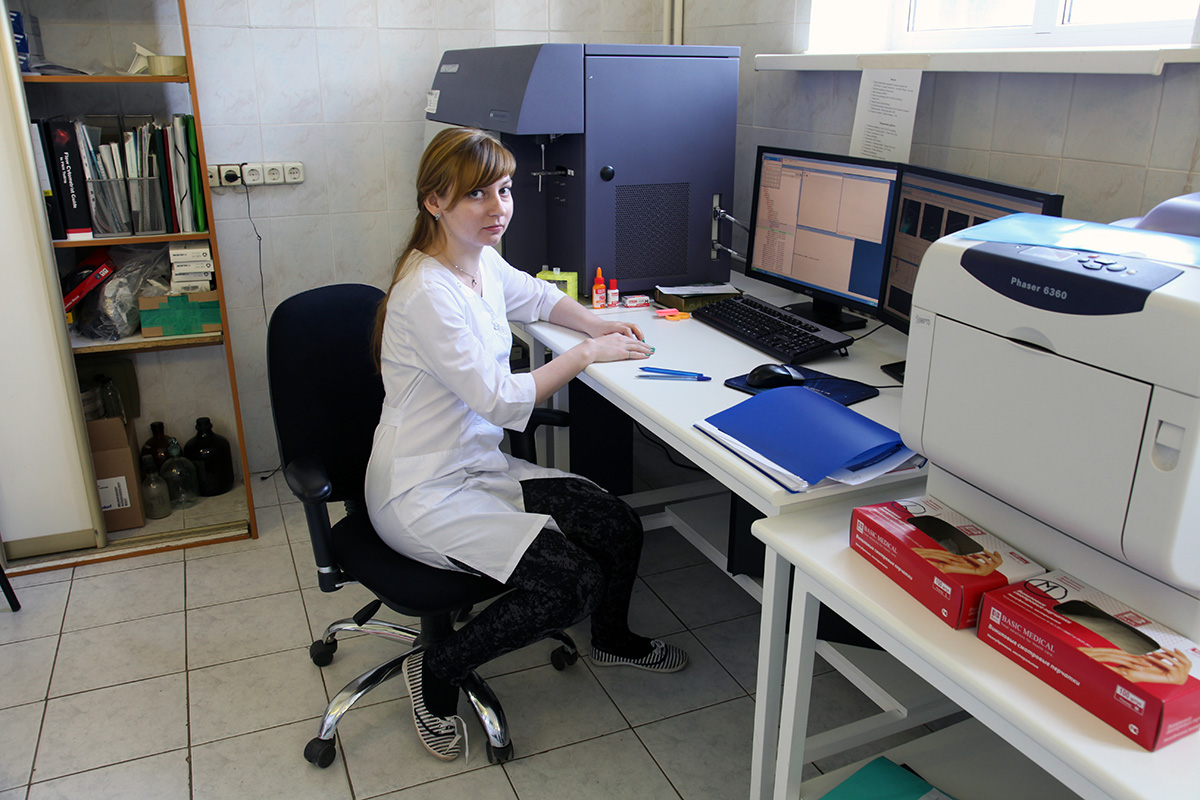
Doctor of Clinical Laboratory Diagnostics, Julia O. Davydova
Diagnosis of plasma cell neoplasia and the search for MRD in multiple myeloma is carried out according to the latest global guidelines for research standardization published in 2016 (Stetler-Stevenson, Paiva, Rawstron). MRD monitoring in acute B- and T-linear lymphoblastic leukemias is carried out within the framework of the ALL-2009 and ALL-2016 protocols. Optimization and development of the methodology for searching for MRD in acute myeloid leukemia is being carried out. For the first time in Russia, the laboratory started using and integrating immunophenotypic research into the scheme for diagnosing myelodysplastic syndromes. This analysis is carried out in accordance with the European recommendations of the LeukemiaNet community.
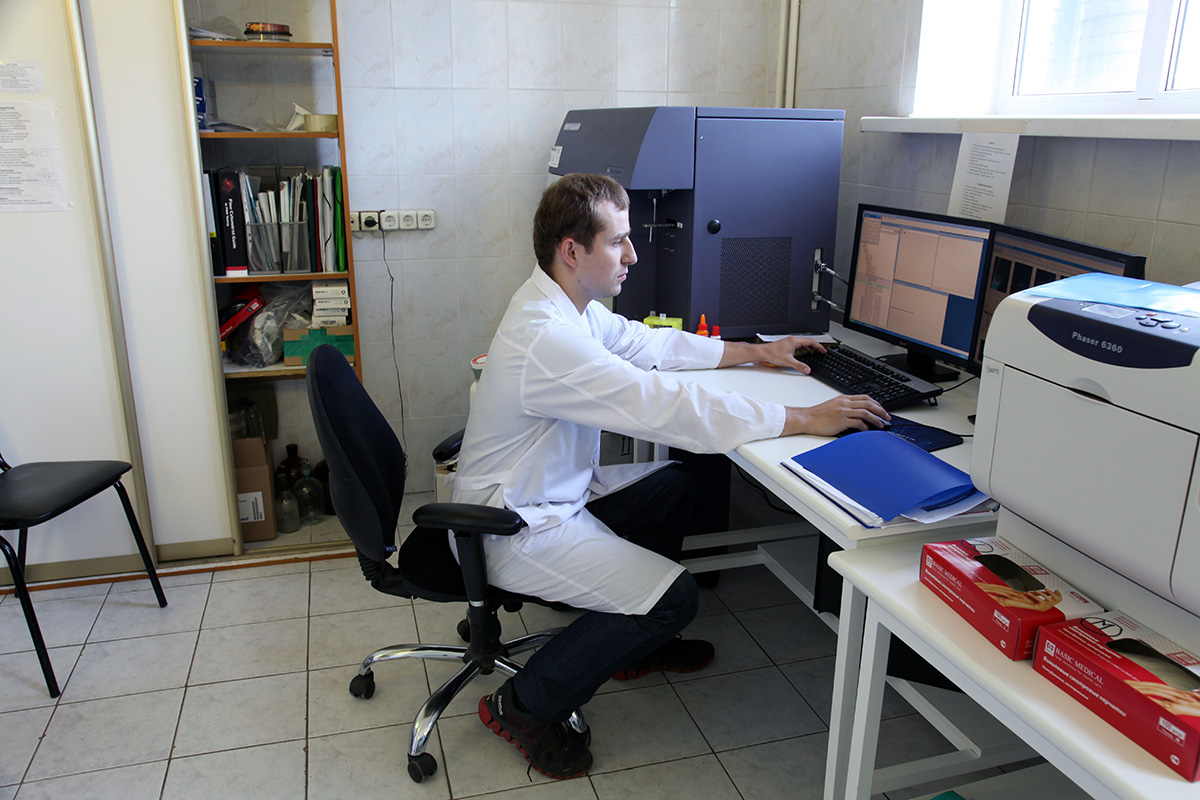
Medical physicist, Nikolai M. Kapranov
Numerous studies are carried out in the laboratory, which form the basis of dissertations of hematologists and transfusiologists. With the participation of laboratory staff, a large number of printed works and poster presentations at international symposiums have been published. The scope of scientific interests includes studies of the subpopulation composition of blood and bone marrow in patients after transplantation of allogeneic hematopoietic stem cells, in particular T-regulatory cells; study of circulating endothelial cells in patients after transplantation; study of angiotensin-converting enzyme expression on mobilized blood stem cells; study of the dynamics of PNH-clone in patients with aplastic anemia; the study of the elements of the immunological synapse in lymphomas; fixed antiplatelet antibodies in patients with multiple transfusions. The laboratory conducted a study of platelet activation markers in donor thromboconcentrates harvested under various conditions, assessed the dynamics of changes in the number of circulating CD34+ cells in peripheral blood in patients after splenectomy, evaluated various properties of multipotent mesenchymal stromal cells used to prevent the graft versus host reaction after transplantation of allogeneic stem cells, assessed the dynamics of changes in the subpopulation composition of blood lymphocytes in patients with acute B-lymphoblastic leukemia, patients receiving targeted therapy and patients after allogeneic kidney transplantation.
KEY EMPLOYEES
Julia O. Davydova — Doctor of Clinical Laboratory Diagnostics
Nikolai M. Kapranov - medical physicist
Laboratory phone: +7 (495) 612-62-21.

